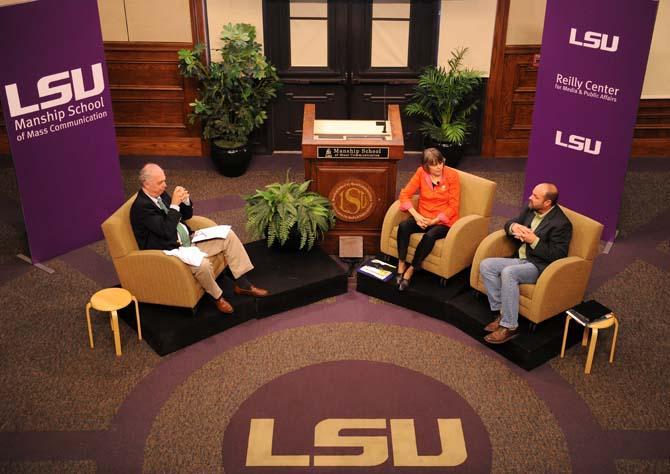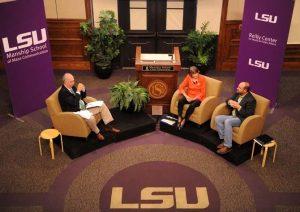Students’ arguments about whose high school dress code was more strict would likely lose the battle to Mary Beth Tinker, who was suspended for wearing a black armband.
Tinker — who won the well-known Supreme Court case Tinker v. Des Moines School District in 1969 — visited the University on Monday as part of her eastern U.S. tour of more than 50 stops with attorney Mike Hiestand. Tinker spoke to students about the importance of knowing and exercising their First Amendment rights.
After being suspended for protesting the Vietnam War by wearing an armband, Tinker fought for her freedom of speech. She won the Supreme Court case against her middle school, stating the school was suppressing her freedom of speech. The case resulted in greater awareness of First Amendment rights, and now eight states have passed laws protecting student journalists and two have made it part of their education code.
After winning the Supreme Court case, it established that students do not “shed their constitutional rights … at the schoolhouse gate.”
While schools have been successful in combatting censorship, many students still fight today for the freedom to promote gay rights and advocate against bullying, Tinker said.
“Young people are perfectly made for taking action,” Tinker said.
She added that students need to put their ideas into action, but “slacktivism” is becoming an issue in this generation.
Tinker said students today use social media to rant about things they think are wrong instead of taking legal action. Students make posts and “like” pages as advocating, but that wasn’t an option in Tinker’s day.
“Social media is our way of reaching out, rather than going [out] into the world,” said mass communication senior Samantha Clement.
Tinker asked students why they think their peers don’t try to change the status quo, and many said they were afraid to speak out against the administration. Others said it was a dangerous move and that they didn’t want to risk their future fighting a battle they thought they would lose.
Tinker saw students’ perspective but said while she was only 13 at the time of the Supreme Court case, she was still entitled to her rights and she could make a difference.
Tinker discusses iconic Supreme Court case, free speech
October 28, 2013
Mary Beth Tinker discusses student press rights Monday, October 28, 2013 in the Holliday Forum.









